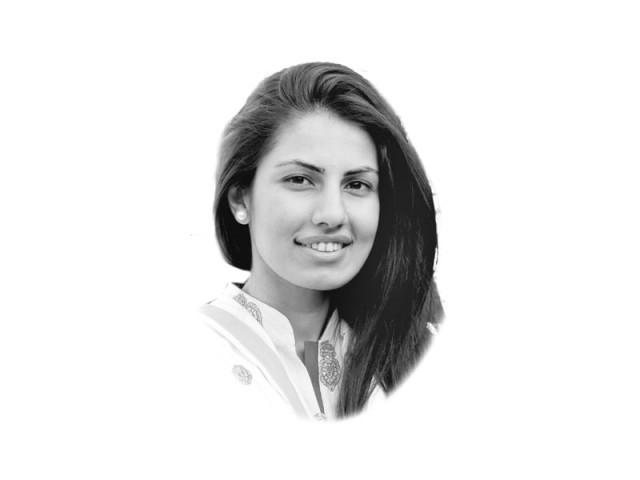Disconcerting repetition in news
It is crucial for reporters to understand sources have the power to affect the perceived credibility of news stories

The writer is a former sub-editor of
The Express Tribune and is now pursuing a PhD in women and peace journalism at the University of Wollongong, Australia. She tweets @ayeshahasan08
As part of the media audience, we irrefutably have our preferences when it comes to media organisations. Our affiliation with certain television channels, print and online news providers or talk shows is defined by our preferences for journalists and writers we want to listen to and read. Before we grab the remote control, we know which channel we are going to switch to and we make up our minds about the selection of a newspaper way before we step closer to a newsstand. Journalists, I understand, have similar preferences too when it comes to source selection; but as providers of news and information from all aspects and schools of thought about diverse issues, I ask: do they, ideally, have the same liberty as the audience? I am not indifferent to the argument that readers inhabit different worlds and are more likely to interact with the like-minded, resulting in a little overlap in the news sources they trust and turn to; but that does not justify journalists’ repetitive quotation of typical sources.
As part of the audience, I have my preferences too, but at the same time, the predictability in the appearance of certain names in news stories over and over again troubles me. It’s like the lyrics of a song. I can tell what’s coming next in whose story, who’s going to speak and what they’ll talk about. The frequency of repetition in news sources and news subjects is becoming so ordinarily perceptible that it is disconcerting, so much so that in some cases journalists have been using the same sources as expert opinion on issues that can never cross paths. We see Mr ‘X’ commenting on human rights violation, a week later he is quoted in a story about the army chief and a few days later, we find him giving his expert opinion about the corruption in infrastructure planning in one of the country’s metropolitans.
It is crucial for reporters to understand that sources have the power to affect the perceived credibility of news stories and ratings of a television show; attributions can easily be associated to journalists, building or affecting their own credibility. A broad-based systematic assessment of sources quoted in news reports and feature stories, and faces that reappear on our televisions screens calls for a much-needed diversity over the prevalent dominance of certain news sources. From a democratic journalistic theory which defies polarisation in news sourcing, efficient pluralistic journalism demands diversity in news sources, which simultaneously implies representativeness — of political and social elite and non-elites, of organised and unorganised individuals, and government and non-government figures.
As someone who has been in journalism for some time, I admit that source catching can sometimes be ridiculously unmanageable, for people who are eligible to comment are either not available or refuse to comment. Sometimes distances make it difficult and at other times lack of time to file a story, so reporters will grab whoever is available. It is fathomable in exceptions, not as routine. Journalists need to expand their circle of sources and stop relying on ‘whoever’s available’, deliberately projecting certain names, unremittingly quoting acquaintances and playing it easy. To them, I have a humble recommendation: start trusting and contacting actual experts on issues you write about, add value to your stories, approach the right people and refresh the names in your contact lists. And the biggest recommendation yet is: please throw in some females in your source lists and avoid quoting people from your families. That one’s a true disaster for your efficiency and credibility.
Published in The Express Tribune, July 25th, 2016.
Like Opinion & Editorial on Facebook, follow @ETOpEd on Twitter to receive all updates on all our daily pieces.














COMMENTS
Comments are moderated and generally will be posted if they are on-topic and not abusive.
For more information, please see our Comments FAQ